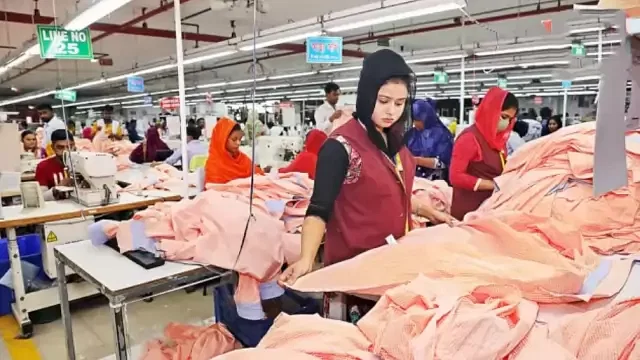Keep factories open to avoid grave consequences

The country’s readymade garment (RMG) sector, the major foreign currency earner, has not yet recovered from the devastating effect of the first wave of the corona pandemic. We now very unfortunately have to cope with the second wave.
Last year the RMG factories had been operating with lots of difficulties and suffered from huge financial losses. The situation was further aggravated by the unplanned closure of the factories extending up to 9 weeks. This resulted in adverse impact on the image of the country and undermined the confidence of some of the major buyers.
While the factories were in operation, they strictly adhered to the implementation of proper health care measures and were successful in ensuring that their workers were well protected. As a result, and this was certainly true of all the Youngone factories, we have, relative to the situation outside, only had to deal with few cases of Covid, thanks to the precautionary measures taken. The situation was normal in the factories and corona positive cases were minimal. Even affected workers being relatively young, could come back to work in good health after 2-3 weeks of quarantine and healing.
This normalcy may be maintained if we can avoid closure of factories, long holidays etc. which, as announced, will be imposed shortly. It may be mentioned that after every long holiday and extended closure, the number of corona cases has increased significantly. If the factories are closed, workers will have to go back to their villages with every likelihood of their either spreading the virus or getting infected by it. Such a situation will add to the difficulties of the workers, the factory owners, the government and the country. Instead, if the factories are kept open, workers will remain in a controlled environment and can be better supported against infections.
When the RMG factories are trying their best to recover and survive in a highly competitive global market, any further closure of the factories will be extremely damaging to our economy whereas, appropriate measures will help avoid the impending disaster.
In this connection I would like to mention that in the case of Vietnam, where Youngone group has a large number of factories, at no stage did the Vietnam authorities order the closure of factories. Ever since the outbreak of the Covid pandemic, the Vietnam authorities rather than shutting down factories, instead restricted the movement of its citizens to go out of their provinces and meticulously enforced the health safety measures which enabled the country to control the pandemic and minimise the damage to the export economy.
The example of South Korea may also be taken into consideration. Last year, Korea restrained the movement of all its citizens to their hometowns, tourist spots even during long holidays. The public places like restaurants, shopping malls etc were opened for shorter hours but all factories and business organisations were functioning as usual, which is continuing till now.
I would like to earnestly request the Government of Bangladesh to consider the points cited by me above and take appropriate measures which will be beneficial to the country and save the RMG sector, which is the lifeblood of Bangladesh, from suffering another damaging blow at a time when it is still in the process of recovering from the serious damage incurred to the RMG sector by the extended closure of the factories last year.
Lastly, Youngone Group and the Korean community will not spare any effort to fight this pandemic.
* Kihak Sung is Chairman and CEO, Youngone Group, Honorary Chairman of Korean Federation of Textile Industries (KOFOTI) and immediate past President of International Textile Manufacturers Federation (ITMF)